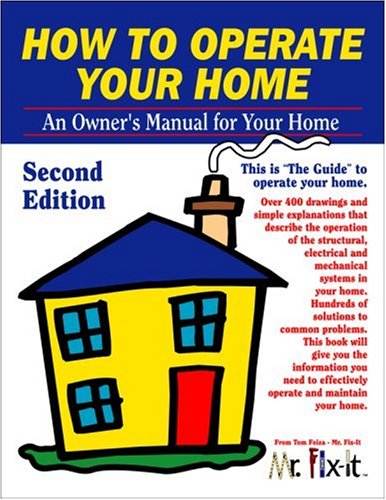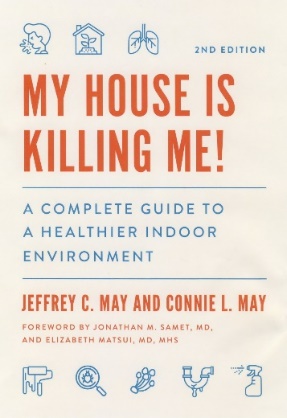Homeowner Newsletter, Winter 2024
©2024 Jeffrey C. May
Many of my clients know very little about their homes, such as the kinds of heating systems or cooling systems they have, and why basements can suffer from water intrusion. I was a home inspector for many years, and I have been conducting indoor air quality investigations of homes, schools, and businesses for over 20 years. Many of the serious problems I have seen during both of these careers could have been avoided if building owners had maintained their properties and had understood the implications of problems they were having but had ignored for too long.
If you want to drive a car, you must first obtain a license from the State you live in to show that you have driving skills. Ultimately, the purpose of having to earn a license is to reduce the likelihood that you could injure yourself or others in a car accident. It also helps if you know something about a car, so you can understand what its maintenance needs might be. The same thing is true for your home. Knowledge is power, as they say!
Here are 14 questions you could answer to test how much you know about your own home.
- Where is the main shut-off valve for your water supply?
- What do you do when your hot-water tank begins to leak?
- Where is your main electric disconnect?
- If your garage has an automatic door opener, how do you open the door during a power outage?
- If you have a ducted heating and/or cooling system, where are the supplies and returns?
- What is the function of a supply? A return?
- What is a toilet seal?
- What might cause a sewer smell in a bathroom?
- What might be causing the black stains on your roof?
- Why might paint or varnish peel from the exterior of your front door?
- What’s the function of a sump pump?
- Why might a faucet leak?
- What are some of the reasons rainwater could leak into your home, both above and below grade?
- What do “above grade” and “below grade” mean?
If you haven’t been able to answer many of these questions or wonder if your answers are correct, we recommend that you get the book How to Operate Your Home, written by home inspector Tom Feiza (“Mr. Fix-It”) and available on line. The information in the book will help you become a better steward of your home as well as be more informed about what work may be needed when speaking to plumbers, electricians, and other repair professionals. Many home inspectors give copies of this book to their clients, and I wish more did the same.
Directing you to this book is one of the best tips we could offer you. As Tom Feiza writes on the cover, “This book will give you the information you need to effectively operate and maintain your home.”

Another tip I could offer you is to get our book, Edition 2 of My House is Killing Me! A Complete Guide to a Healthier Indoor Environment, also available on line. Connie and I used to be teachers, so in our books we aim to give people useful information about indoor air quality as well as practical tips and recommendations to achieve healthier homes.
As we wrote in the first sentence of the introduction, “We wrote this book not only for people who sneeze, cough, or wheeze in indoor space but also for anyone who wants a healthier indoor environment be reducing potential exposures to indoor contaminants, allergens, and irritants.”

Happy New Year,
Jeff May
